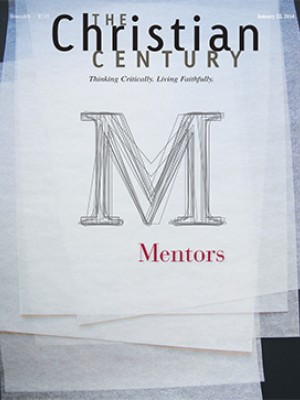Rift grows for United Methodists
A deep divide within the United Methodist Church over how to minister to gays and lesbians has led a Washington, D.C., pastor to suggest the denomination should not wait until its 2016 General Conference to change its policies.
Bishops could call a special General Conference to address the policies that are splitting the church, said Dean Snyder, senior pastor of Foundry United Methodist Church, a large and prestigious church near Dupont Circle.
“Some of us believe this issue is critical enough to do that,” Snyder said in a telephone interview. “There’s more and more pressure from one side to enforce the rules and more and more pressure from the other side that thinks the rules are unjust and unloving.”
On Sunday, December 22, Snyder’s church welcomed Frank Schaefer, a former Lebanon, Pennsylvania, United Methodist minister, to his Washington congregation. Schaefer was found guilty in November of violating church law for performing a 2007 same-sex wedding of his son to another man. When he said he would refuse to quit performing same-sex weddings, church officials in Pennsylvania stripped him of his clergy credentials.
Read our latest issue or browse back issues.
At least four more clergy trials are possible in the near future for other Methodist pastors who have officiated at same-sex marriages.
Snyder, who has performed as many as a dozen same-sex weddings but has not been prosecuted by the church, does not oppose using trials to enforce the church’s rulebook, the Book of Discipline.
“But these trials are about enforcing obedience to just some of the rules of the church,” he said. “That draconian effort to force obedience to selected rules leaves a bad taste in people’s mouths. Trials are counterproductive, and we have to find other ways to negotiate our differences.”
The denomination accepts gay and lesbian members, but its Book of Discipline calls the practice of homosexuality “incompatible with Christian teaching” and bars clergy from performing same-sex unions.
Since he was defrocked, Schaefer has received an outpouring of support. Foundry invited him to join as a member, and he gave the sermon on the Sunday before Christmas. Reading Matt. 1:18–25, he cited Joseph as a model of love who was unwilling to subject Mary to public disgrace.
In another sign of the growing rift, Bishop Minerva G. Carcaño, based in Southern California, invited Schaefer on December 20 to join the church’s California-Pacific Conference. While noting that only a board of ordained ministry could reinstate his credentials, Carcaño said, “We should stand with him and others who show such courage and faithfulness.”
Also on December 20, Bishop John Schol of the Greater New Jersey Conference released a tearful video statement in which he called on the church to stop using church trials to decide questions of faith and told gays and lesbians many people in the church support them.
“You are children of God, of sacred worth,” Schol said. “There are United Methodist churches that open their doors wide to you and are ready to be in ministry with you and treat you just like every other member of their church.”
At Foundry Church, Schaefer told the congregation that he had received hundreds of e-mails, most of them supportive, according to the United Methodist News Service. He urged Methodists threatening to quit the denomination to stay: “We need you in our fight.”
Activists for LGBT marital rights admit that theirs has been a losing battle in the UMC. Every four years when the global UMC holds its World Conference, an increasing ratio of delegates from Africa, Asia and South America block any steps to accept same-sex marriage.
Schaefer, in that vein, put it bluntly—the United Methodist Church has been in “homophobic captivity” for more than 40 years. Yet asked by a reporter if the fight will lead to a split in the church, Schaefer replied, “I think we’re already split. . . . Something has to change, something has to give.” —RNS/added sources






